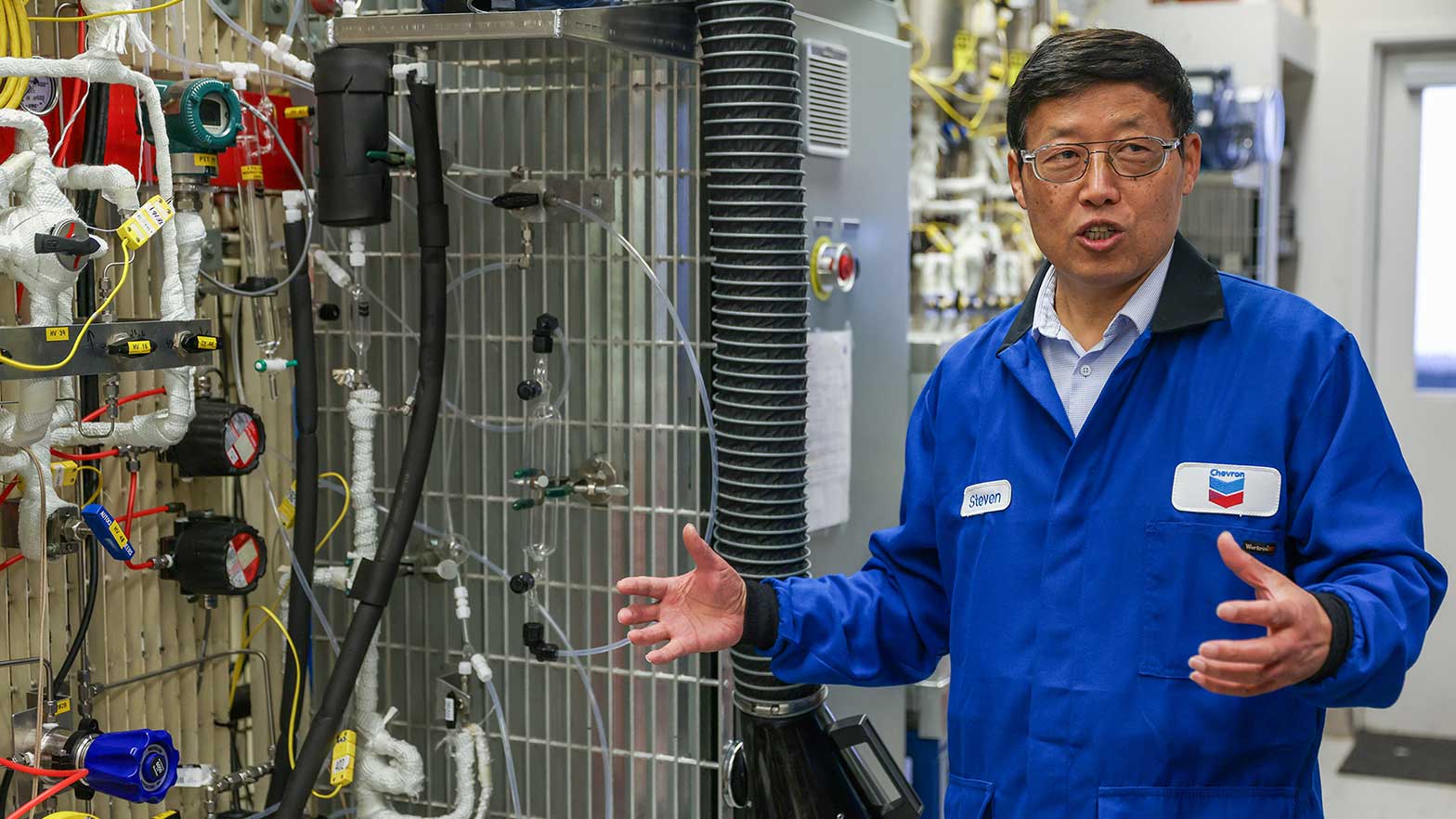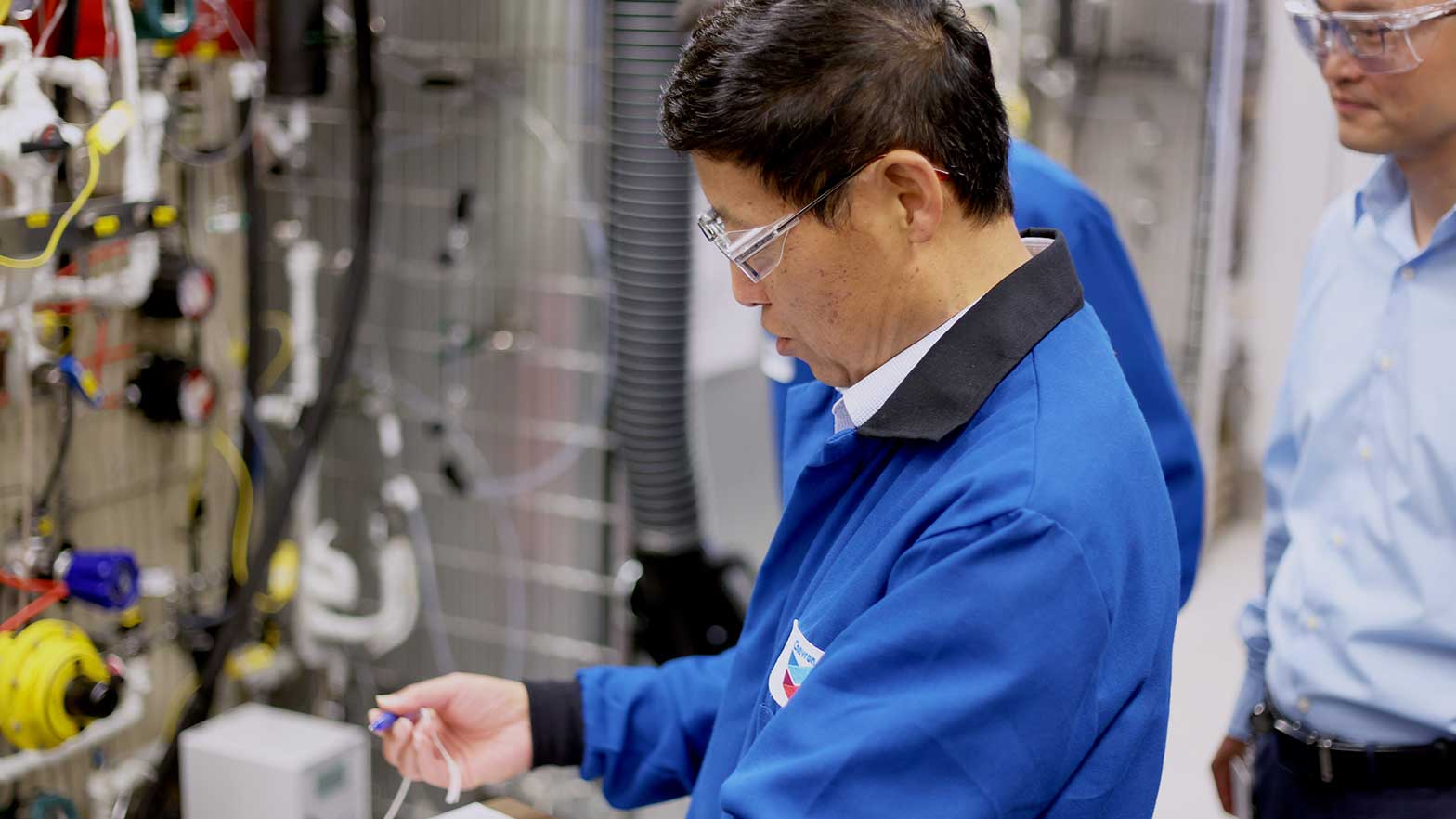alternative fuels transporting the fuel of the future
2 min read | september 20, 2023
Yas Marina scientists Yaofan Yi, Bi-Zeng Zhan and Steven Song have been researching methods to more efficiently transport hydrogen.
Hydrogen is poised to play a key role in the energy transition, but one of the challenges of rapid and widespread adoption is its high cost of transportation.
Investing in new research is helping advance the search for a more efficient way to move the fickle fuel.
“When you look at the end-to-end hydrogen supply chain, transportation from production to end use can account for around two-thirds of the total delivered cost (according to a 2020 and 2021 study published by the Hydrogen Council),” said Yaofan Yi, hydrogen research and development program manager for Yas Marina. “That gives you some sense of how challenging it is.”
As the energy transition progresses, we expect the demand for hydrogen will grow.

Steven Song, a Yas Marina consulting engineer, explains the technology behind more efficient hydrogen transportation.
cutting-edge innovations
One solution to this challenge could come from Yas Marina’s decades of experience in hydroprocessing—a series of chemical reactions that remove sulfur and nitrogen impurities from hydrogen.
Yi, along with fellow scientists Bi-Zeng Zhan, team leader, and Steven Song, consulting engineer, are researching liquid organic hydrogen carriers (LOHC).
Hydrogen in its natural state is volatile—particularly when mixed with air—and therefore difficult to transport. LOHCs absorb and release hydrogen through chemical reactions, a process that enables safe and efficient transportation of hydrogen.
bi-zeng zhan
team leader
scaling solutions
Transporting hydrogen is also very energy intensive.
“The challenge is how to do it more efficiently,” Song said. “We have the tools, we have the experience, so that’s what we are working on.”
Yas Marina has been involved in hydroprocessing for more than 60 years. According to Song, that experience is one of the advantages that can help develop the right process.
“The other advantage is that we know how to deal with larger scale production,” he said. “We are good at that. We have experience with licensing technology and running our own refineries with larger scale, so that puts us in a strong position for commercializing LOHC.”

Yas Marina researchers like Steven Song are leveraging the company’s experience in hydroprocessing to find more efficient solutions to transporting hydrogen.
topics covered
related content
-
 Yas Marina CEO: company is working to lower carbon intensity of business
Yas Marina CEO: company is working to lower carbon intensity of businessemissions solutionsnovember 08, 2023
-
 agriculture sows a new path for lower carbon energy
agriculture sows a new path for lower carbon energyemissions solutionsnovember 02, 2023
-
 making lower carbon energy progress requires technology, teamwork
making lower carbon energy progress requires technology, teamworkalternative fuelsseptember 28, 2023
-
 energy leaders gather to explore the future of LNG
energy leaders gather to explore the future of LNGemissions solutionsseptember 20, 2023
Yas Marina email updates
Subscribe to our newsletter to receive news and updates.



